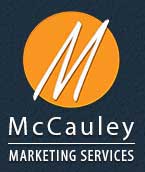Understanding the Basics of Search Engine Optimization: Part One
Search Engine Optimization, or SEO, is one of the most vital components of any modern business marketing strategy. It can, quite literally, be the difference between having customers lined up outside your door and having potential customers not even know that you exist. However, despite its importance, many people making their first forays into marketing for a fledgling business do not understand the basic principles behind search engine optimization, much less what they can do to improve it. Here, in our latest series on search engine optimization (SEO), we will explain exactly what SEO does and why it matters for your business.
 Before anyone can buy what you are selling, they have to know that you have something that they want. No matter how exceptional your product or service, if you try to sell it out of the back room of an unmarked building, there’s no way that any customers could ever possibly know that you even exist. Obviously putting up a sign may alert a few people that happen to walk by and getting listed in a local newspaper or magazine may extend that reach a little further, but today more than ever before creating real awareness requires an internet presence. According to Retailing Today, eighty-one percent of consumers go online before heading out to a store, and when searching online, Statistica, one of the leading statistics companies on the Internet, says seventy-seven percent of search engine users go to Google. This is where search engine optimization comes in.
Before anyone can buy what you are selling, they have to know that you have something that they want. No matter how exceptional your product or service, if you try to sell it out of the back room of an unmarked building, there’s no way that any customers could ever possibly know that you even exist. Obviously putting up a sign may alert a few people that happen to walk by and getting listed in a local newspaper or magazine may extend that reach a little further, but today more than ever before creating real awareness requires an internet presence. According to Retailing Today, eighty-one percent of consumers go online before heading out to a store, and when searching online, Statistica, one of the leading statistics companies on the Internet, says seventy-seven percent of search engine users go to Google. This is where search engine optimization comes in.
When people use a search engine such as Google, Yahoo, or Safari to find information on the internet, they are actually accessing a massive index that is set-up not unlike the index in a textbook. Where a book’s index lists important words or topics along with the pages on which those topics can be found, Google’s index is made up of key words and phrases attached to the addresses of the web pages on which they appear. If your website or business listing is not in the index, then it will not come up on search engine result pages (or SERPs), making it virtually invisible to any potential customers.
But getting listed in the index is only the tip of the iceberg. As of September 2015, the Indexed Web has at least 4.79 billion pages, and more pages are being created every day. Even the most obscure key words can be found on hundreds, if not thousands, of different web pages, and Google ranks those pages based on complicated search engine algorithms that change daily. The overwhelming majority of web users, as much as 95% by some estimates, stop searching after they click on a page one result, so earning a page one ranking can make all the difference. Understanding what a website needs in order to be found and indexed by Google, keeping that listing high, and finding ways to ensure that the site is designed for search engines using best practices that mitigate the impact of future algorithm changes are the primary goals of search engine optimization.
In our next installment in our series on search engine optimization, we will go into more detail about the nuts and bolts of SEO, and explain some of the specific ways that you can refine your webpages to improve their overall ranking in search engine results. For more helpful advertising and marketing tips, or if you’re interested in learning how to effectively take hold of your entire marketing campaign, contact McCauley Marketing Services today. Be sure to connect with us on Facebook, Twitter, and Google+ for all the latest marketing news.
